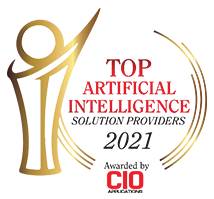
9 Ways Blockchain Will Transform Distributed ERP in Agriculture
Please see my related article on 9 Ways AI Will Transform Distributed ERP in Agriculture.
The Impact of Blockchain
It is widely acknowledged that Blockchain is revolutionizing financial transactions.
That there will be impact far beyond the financial sector is also widely understood.
Blockchain’s impact on the agriculture sector is perhaps the most impressive as technology adoption in agriculture lags most industries at roughly 1%, for a number of reasons.
The opportunity and potential for Blockchain to revolutionize agriculture are there.
Distributed ERP and Blockchain: A Quick Introduction
Distributed ERP (Enterprise Resource Planning) is a decentralized approach to ERP systems. Unlike traditional ERP setups where operations are centralized, Distributed ERP spreads its operations across interconnected modules, leveraging cloud infrastructures and edge computing, aiming for real-time data sharing, process integration, and decision-making across various geographies and operational centers.
Blockchain is a decentralized and distributed digital ledger technology designed to record and validate a series of data transactions across multiple computers. Its name, “blockchain,” stems from the way data is structured: transactions are bundled into “blocks,” and each block is linked, or “chained,” to the previous one, forming a continuous sequence.
Key characteristics of blockchain include:
- Decentralization:Unlike traditional centralized databases where a single entity has control, in a blockchain, every participant (or node) on the network has access to the entire database and the complete transaction history.
- Transparency:Transactions are visible to all network participants and are immutable, meaning they cannot be altered or deleted once validated.
- Security:Transactions must be agreed upon before they are recorded. After validation, they are encrypted and linked to the previous transaction, making unauthorized alterations near impossible.
How Blockchain Strengthens and Augments the Advantages of Distributed ERP Systems in the Agricultural Supply Chain
- Advanced Farm-to-Table Traceability: Blockchain’s hallmark is its capability for complete traceability of produce and related transactions. Within the agricultural supply chain ERP, this ensures stakeholders can track every product back to its farm origin, ensuring unparalleled transparency and confirming the authenticity of produce.
- Farm Data Security and Fraud Deterrence: Blockchain’s unchangeable characteristic, fused with its decentralized framework, makes it impervious to unauthorized changes and manipulations. This guarantees the data within the agricultural ERP remains authentic, secure, and consistent.
- Efficient Produce Transactions and Cost Reduction: Traditional agricultural ERP systems might require middlemen, especially for global exports. Blockchain, with its direct peer-to-peer trading potential, can omit these intermediaries, consequently reducing transaction times and associated costs.
- Agricultural Smart Contracts: These self-executing agreements, with their stipulations embedded directly into the code, can automate various agricultural processes, such as seed orders, produce payments, and even quality checks. This ensures conditions are fulfilled before transaction completions.
- Instantaneous Sharing of Farm Data: The distributed characteristic of blockchain enables real-time data sharing among all participants. This means every unit in the agricultural ERP can access pertinent data immediately, promoting prompt decision-making and synchronized actions.
- Robust Data Reliability in Agriculture: Since blockchain entries are permanent and confirmed by network consensus, the integrity of agricultural data is inherently top-notch. This guarantees consistent and reliable data for supply chain decisions across all distributed ERP stages.
- Decentralized Farmer Identity Solutions: Blockchain can implement decentralized identity management, ensuring that user credentials and access within the agricultural ERP network remain secure, verifiable, and resistant to potential breaches.
- Resolution of Supply Discrepancies: The unparalleled transparency provided by blockchain minimizes disputes related to produce shipments, contracts, or trades. If disagreements emerge, the permanent record offers a precise and commonly accepted reference for resolution.
- Agricultural System Interconnectivity: As farming operations grow and diversify, agricultural ERPs must liaise with other external platforms. Blockchain, as a standardized protocol, bolsters this interoperability, facilitating smooth interactions between varying ERP modules or systems.
Conclusion: Revolutionizing Distributed ERP in Agriculture
About dFarm
dFarm’s Blockchain-powered Distributed ERP/SCM solutions provide one source for trusted data, utilizing predictive analytics, real-time monitoring, and intelligent forecasting to increase agriculture supply chain transparency, efficiency and productivity. dfarminc.com




